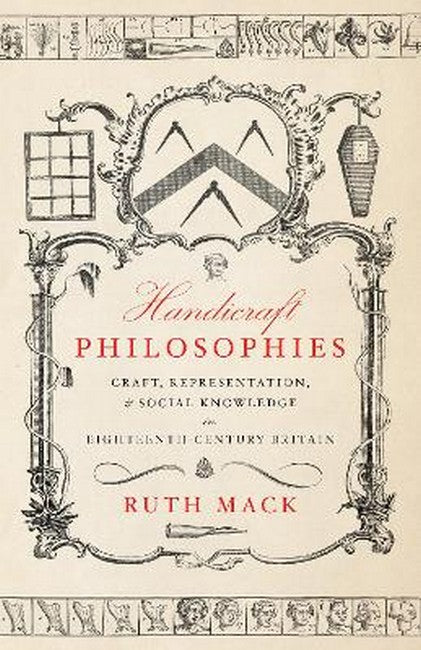Ruth Mack is Associate Professor of English at the University at Buffalo, SUNY. She is the author of Literary Historicity: Literature and Historical Experience in Eighteenth-Century Britain (Stanford, 2008).
Request Academic Copy
Please copy the ISBN for submitting review copy form
Description
INTRODUCTION: Making Social Knowledge 1. EDUCATION: Crime, Punishment, and Realism in Defoe 2. LABOR: Craft Poetry in Duck and Collier 3. ART: Handicraft Lines in Hogarth 4. SCIENCE: Practicing Science in Banks's Tahiti 5. USE: Useless Bodies in Johnson and Boswell 6. FETISH: Equiano's Antislavery Craft CODA: Handicraft Humanities?
"Handicraft Philosophies offers a groundbreaking and original argument. In redefining our understanding of intellectual history to embrace the forms of knowledge incarnated in work and labor, Mack invites a broader reappraisal of the literary and philosophical canon." -Lynn Festa, Rutgers University "In this book, Ruth Mack provides a radical and thrilling new answer to an old question-what is Enlightenment? As it retells, often to moving effect, the story of the development of the human sciences, Handicraft Philosophies puts knowing by doing, embodied craft, front and center. This deeply humane book honors labor, that of the writing body included, in ways that transform our understanding of eighteenth-century British literature." -Deidre Lynch, Harvard University "Across eighteenth-century forms and materials, Mack marshals a foundational restaging of craft and body: of body as maker and as made, of craft as accreted practice and as social theory, of maker's knowledge as embodied reason able to grasp and enact power differently." -Helen Thompson, Northwestern University

